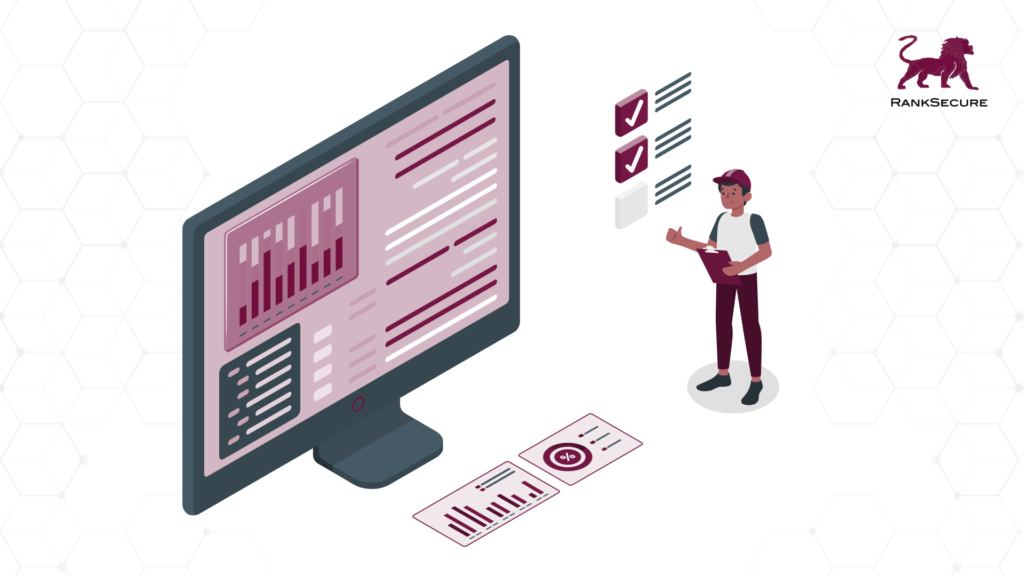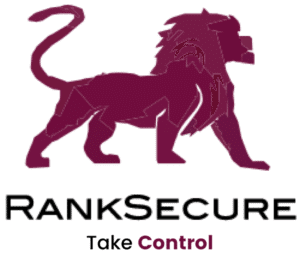
Factors to consider while choosing the right penetration testing company for your industry
As organisations across all industries become prone to cyber-attacks and threats, effectively identifying vulnerabilities and securing your valuable assets should now be of extreme importance.
According to an application security report released by the Ponemon Institute, 1 in 5 companies do not test their software for security vulnerabilities.
In order to keep up with this changing cybersecurity landscape, engaging a reliable and skilled penetration testing company is crucial. However, selecting the right penetration testing company that offers tailored services for your industry or niche can be challenging, to say the least.
Let’s discuss the key factors that you should consider when choosing a penetration testing company to ensure that the security assessments align with your industry-specific requirements.
How do penetration testing services differ for various industries?
Before we dive in deep and take a look at the considerations, let’s first talk about why it is important for you to choose a penetration testing company that provides industry-specific testing services.
Based on every industry, there are certain characteristics that differ. Here’s a brief overview of these aspects –
Regulatory compliance requirements
Different industries have specific regulatory compliance requirements. For example, healthcare organisations may require compliance with the Health Insurance Portability and Accountability Act (HIPAA), while financial institutions may need to adhere to the Payment Card Industry Data Security Standard (PCI DSS).
Industry-specific knowledge of systems and processes
The systems, applications, and processes in place for every industry are unique. Penetration testing providers must be aware of the technologies, systems, applications, and protocols commonly used in that sector, which allows them to better assess the security posture and identify vulnerabilities that are more prevalent in those industries. For instance, a penetration testing service catering to the e-commerce industry will have a deeper understanding of online payment systems, shopping carts, and user account management.
Threat Landscape and Attack Vectors
The threat landscape and attack vectors vary across industries. Specialised penetration testing service providers will have insights into the common attack vectors and tactics that threat actors use within that sector. They can simulate realistic attack scenarios that are specific to the industry, enabling your organisation to identify and address vulnerabilities that are most relevant to your environment.
It is important for you to choose one of the best penetration testing companies – one that has the experience and expertise to assess vulnerabilities pertaining to your respective industries. This ensures that the testing is conducted in a manner that aligns with industry-specific needs and regulations, resulting in a more effective assessment of security vulnerabilities and risks.
Key Factors to Consider While Choosing a Penetration Testing Company
Expertise and Specialisation of the Pentest Team
When assessing penetration testing companies, it is vital to evaluate their expertise and specialisation. Look for companies with a history of working within your industry, as they possess industry-specific knowledge and understand the unique security challenges you face. They should have experience in dealing with the technologies, compliance regulations, and frameworks relevant to your organisation.
Besides that, consider the certifications and credentials held by the penetration testing company. Reputable certifications like Certified Ethical Hacker (CEH) or Certified Information Systems Security Professional (CISSP) demonstrate the company’s commitment towards keeping up with industry best practices and professional standards. These certifications assure you that the penetration testing team possesses the necessary skills and knowledge to conduct comprehensive security assessments.
Methodology and Approach Followed by Penetration Testing Providers
Take your time to understand the methodologies and approaches employed by the penetration testing company. They should have a well-defined and transparent testing process that aligns with industry standards and regulations. Companies that follow recognised frameworks such as Open Web Application Security Project (OWASP) or the Penetration Testing Execution Standard (PTES) are ideal. Ensure that their approach encompasses both automated and manual testing techniques for a comprehensive assessment.
Understanding of Industry-specific Regulations & Compliance Standards
Consider the pentesting team’s expertise in understanding and maintaining compliance with industry-specific regulations. Depending on your industry, you may be subject to data protection laws, healthcare regulations (e.g., HIPAA), or financial compliance (e.g., PCI DSS). The penetration testing company should be familiar with these regulations and capable of aligning their testing methodologies and reporting with compliance requirements.
Collaboration and Communication
Assess the penetration testing provider’s willingness to collaborate and communicate effectively with you throughout the engagement. This includes initial scoping discussions, progress updates, recommendations, and post-engagement support. The penetration testing company you choose should demonstrate a commitment to understanding your organisation’s specific goals, challenges, and risk tolerance, and should tailor their approach accordingly for optimal results.
Reputation and References
Conduct a thorough research before you choose to hire a penetration testing company. Consider their reputation within your industry, and theirs. Look for testimonials, case studies, or references from other organisations that have engaged their services. Seek feedback from peers or industry networks to gauge their reliability. This is a crucial factor that you must not overlook while hiring pentesting providers. Since you’re allowing this team of experts to penetrate your organisation’s systems, they may also gain access to your sensitive business data. If the reliability of their services is unverified, you may not want them to gain access to your confidential data and assets, to avoid any mishaps.
Cost and Value
While cost should not be the sole determining factor, it is essential to consider the value provided by the penetration testing company. Evaluate the company’s pricing structure, ensuring it aligns with the scope of services they offer, industry expertise, and the comprehensiveness of their assessments. Look for a balance between cost-effectiveness and the value derived from the engagement.
Conclusion
As we discussed earlier, penetration testing providers who understand the industry-specific use cases of your IT infrastructure can offer better, more customised penetration testing services. Additionally, when you hire a penetration testing company to secure your business’s digital ecosystem, you’re inviting them to attempt to penetrate your systems and gain access to your sensitive data. It requires a thoughtful and comprehensive evaluation process. Engaging a reliable and skilled penetration testing company is a crucial step towards mitigating vulnerabilities, enhancing network security, and safeguarding your organisation’s most valuable digital assets and reputation.
Recent Posts
What Is Patch Management? A Beginner’s Guide to Cybersecurity
When you study the world’s most damaging cyberattacks, one pattern keeps showing up. It is not always the cutting-edge zero-day exploit or the advanced persistent threat that breaks systems. It is often a known vulnerability, with a patch available, left unapplied for weeks or months. In every case,
The Real Reason Breaches Happen: Patch Delays
“A patch was available, but not applied in time.” That line keeps showing up, in regulatory findings, cyber insurance disputes, and boardroom debriefs. And for good reason: most successful attacks do not rely on novel techniques. They exploit known, fixable weaknesses. In fact, over 60 percent of breaches
What Is IT Asset Management? A Comprehensive Beginner’s Guide
Step inside any modern enterprise, and you’ll find an ever-expanding digital footprint: endpoints humming across departments, SaaS platforms proliferating faster than they’re being audited, cloud instances spun up without governance, and workloads moving in real time. It’s a playground and a potential minefield. Unmonitored endpoints become soft targets.






